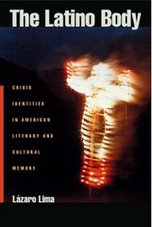
Mexicans Americans have found it difficult to imagine state power in the US to be anything but arbitrary since the "Mexican Repatriation" of 1930 to 1934. Occasioned by the Great Depression, the forced deportation of over 500,000 Mexican Americans to Mexico made the idea of state protection for nationals of Mexican ancestry in the US a failed legal promise with limited dividends (over 60% were US citizens, many others were legal residents). So as the nation contemplates immigration "reform" what is surprising is that in the convoluted history of Mexican American rights initiatives and immigration battles there have been so few attempts at mass rallies and demonstrations on the national scene. Tonight, on the eve of the May Day rallies across the US, it is also surprising that we are already being given a narrative about how it will likely pale in comparison to last year's national rallies and demonstrations.
Immigration rallies likely smaller
By Martin Kasindorf, USA TODAY
LOS ANGELES — Marchers demanding a path to U.S. citizenship for as many as 12 million undocumented immigrants will take to the streets in many cities Tuesday, but organizers say crowds will fall far short of last year's giant rallies on May 1.
A year ago, police estimated that more than 1 million people rallied for rights for illegal immigrants and against a short-lived proposal in Congress that would have made illegal entry to the USA a felony.
Crowds were estimated at 400,000 in Los Angeles, 400,000 in Chicago, 30,000 in Houston and 20,000 in New York City. In economic boycotts billed as "a day without immigrants," hundreds of thousands of Hispanic workers and their supporters didn't punch the clock. The ports of Los Angeles and Long Beach shut down, and 72,000 students walked out of classes in Los Angeles.
In contrast, a march here Tuesday is likely to attract no more than "tens of thousands," says Javier Rodriguez of the March 25 Coalition, a group named for a rally of 500,000 here in 2006.
In Tucson, where 18,000 marched last year, 10,000 are expected to turn out, says Frida Espinosa of the Tucson May 1 Coalition. There's comparatively little talk of boycotts.
Event planners attribute part of the difference to nationally syndicated Spanish-language radio disc jockeys. They whipped up crowds last year but have shifted political tactics.
The popular Eduardo Sotelo, known as Piolín or "Tweetybird," is asking listeners to write a million letters in support of immigration changes. He says he'll deliver those letters to Congress. Renán Almendárez Coello, the DJ known as El Cucuy ("the boogeyman"), says persuading legal residents to become citizens and vote is more effective than marching.
"It was very nice to see everybody walking around and being supportive and not making a big mess, but it is more important to register and vote," he says.
Demonstration organizers also attribute lowered expectations to fragmented leadership, discouragement that Congress approved no immigration bill last year and a more punitive climate.
"The situation has changed drastically for us," says Armando Navarro, coordinator of the National Alliance for Human Rights. "Last year, there was a sense of passion and determination, inspired by fear of criminalization and rising expectations for legalization. The political climate is becoming more restrictionist right now, and our capacity to respond is not there."
As cities such as Hazleton, Pa., pass laws cracking down on illegal immigrants, U.S. Immigration and Customs Enforcement stages raids on workplaces to detain undocumented workers.
By displaying such toughness in protecting borders, President Bush could soften opposition to the kind of immigration bill he wants: one that would combine stepped-up law enforcement with a path to citizenship for illegal immigrants.
House Republicans blocked such a bill last year after the Senate passed it. Democrats now control Congress and side with Bush on the issue, but Republican votes are needed.
Immigrant rights groups are split over the latest proposal in Congress, sponsored by Reps. Luis Gutierrez, D-Ill., and Jeff Flake, R-Ariz. The bill would provide a way to earn citizenship that "could take up to 20 years," the skeptical Navarro says.
Navarro says activists did little to keep immigrant communities mobilized after last year's rallies and find it hard to "rekindle that spirit." Jorge-Mario Cabrera, a spokesman for the Central American Resource Center here, cites one reason it's so hard: "There is a real disappointment in the community that last year we became so engaged, and nothing happened."

